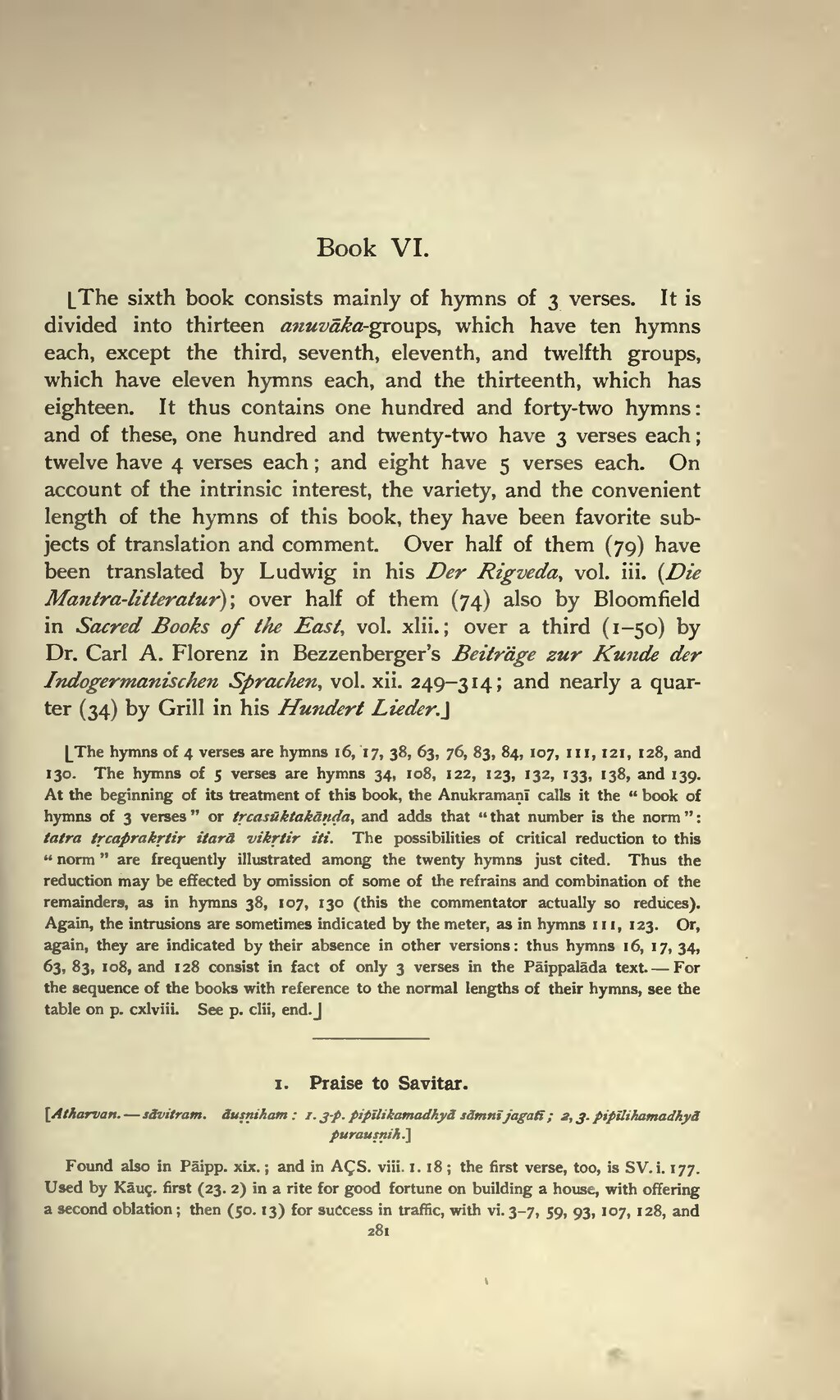Book VI.
⌊The sixth book consists mainly of hymns of 3 verses. It is divided into thirteen anuvāka-groups, which have ten hymns each, except the third, seventh, eleventh, and twelfth groups, which have eleven hymns each, and the thirteenth, which has eighteen. It thus contains one hundred and forty-two hymns: and of these, one hundred and twenty-two have 3 verses each; twelve have 4 verses each; and eight have 5 verses each. On account of the intrinsic interest, the variety, and the convenient length of the hymns of this book, they have been favorite subjects of translation and comment. Over half of them (79) have been translated by Ludwig in his Der Rigveda, vol. iii. (Die Mantra-litteratur); over half of them (74) also by Bloomfield in Sacred Books of the East, vol. xlii.; over a third (1-50) by Dr. Carl A. Florenz in Bezzenberger's Beiträge zur Kunde der Indogermanischen Sprachen, vol. xii. 249-314; and nearly a quarter (34) by Grill in his Hundert Lieder.⌋
⌊The hymns of 4 verses are hymns 16, 17, 38, 63, 76, 83, 84, 107, 1ll, 121, 128, and 130. The hymns of 5 verses are hymns 34, 108, 122, 123, 132, 133, 138, and 139. At the beginning of its treatment of this book, the Anukramani calls it the "book of hymns of 3 verses" or tṛcasūktakāṇḍa, and adds that "that number is the norm": tatra tṛcaprakṛtir itarā vikṛtir iti. The possibilities of critical reduction to this "norm" are frequently illustrated among the twenty hymns just cited. Thus the reduction may be effected by omission of some of the refrains and combination of the remainders, as in hymns 38, 107, 130 (this the commentator actually so reduces). Again, the intrusions are sometimes indicated by the meter, as in hymns 111, 123. Or, again, they are indicated by their absence in other versions: thus hymns 16, 17, 34, 63, 83, 108, and 128 consist in fact of only 3 verses in the Pāippalāda text.—For the sequence of the books with reference to the normal lengths of their hymns, see the table on p. cxlviii. See p. clii, end.⌋
1. Praise to Savitar.
[Atharvan.—sāvitram. āuṣṇiham: 1. 3-p. pipīlikamadhyā sāmnī jagatī; 2, 3. pipīlihamadhyā purauṣṇih.]
281
